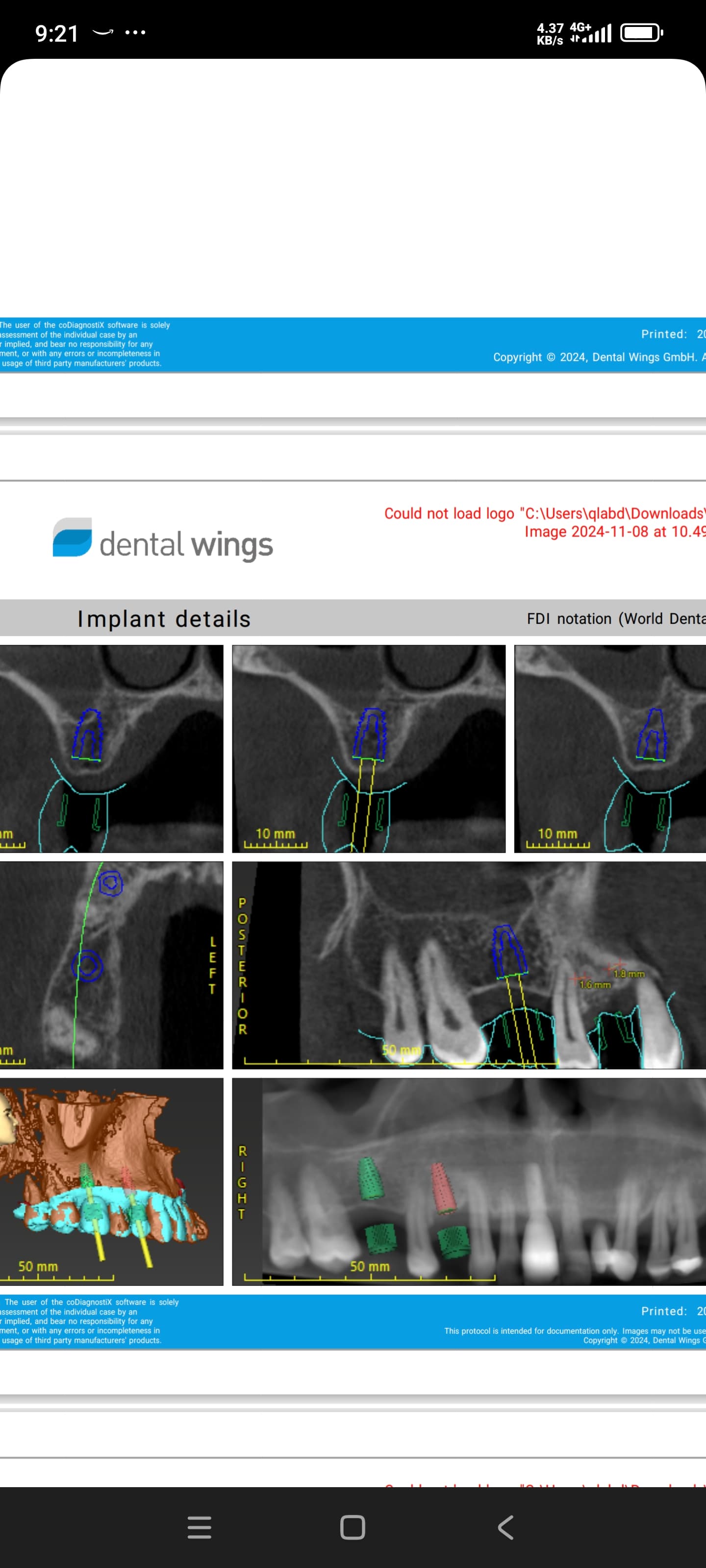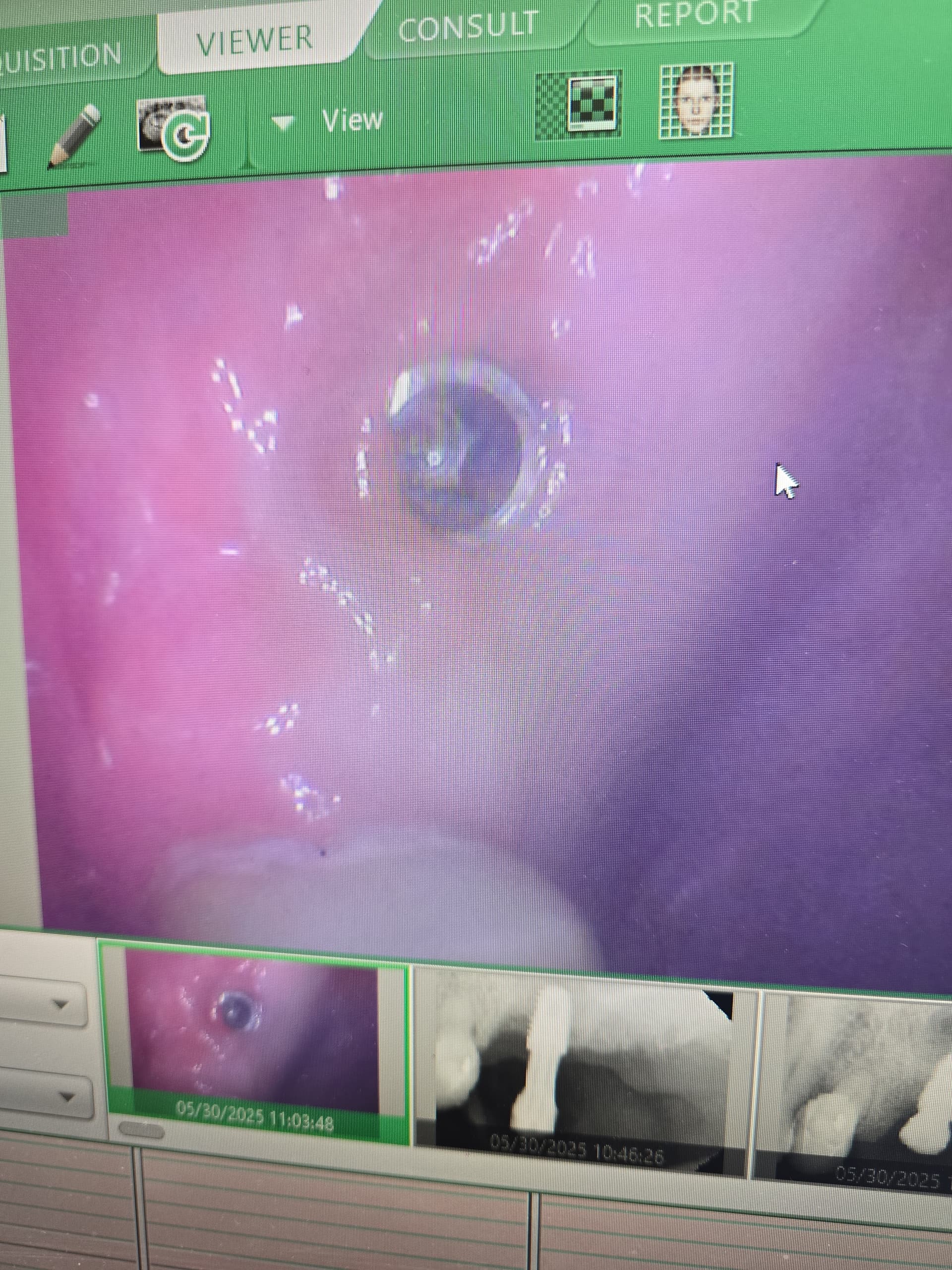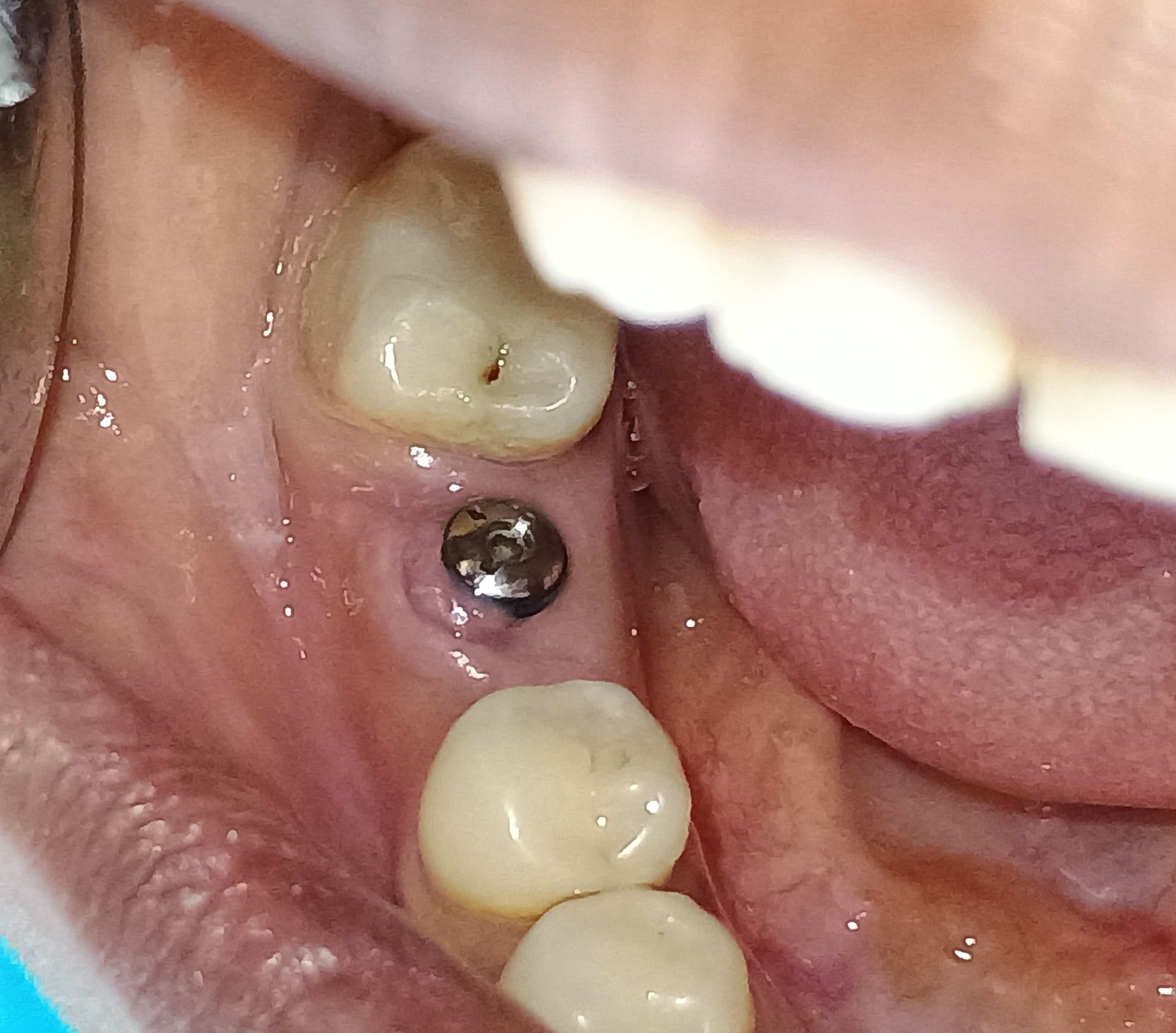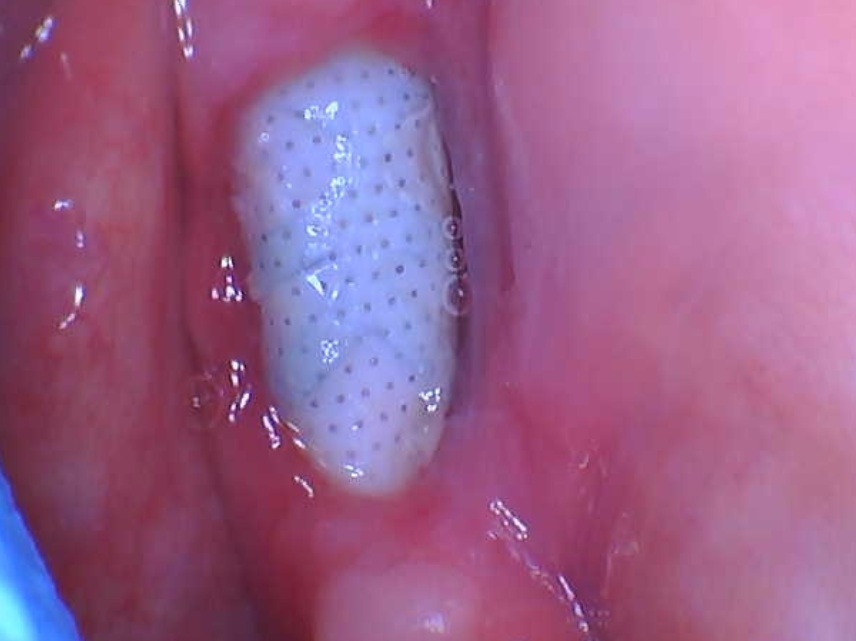Use of Prilosec: Can This Cause Bone Loss with Implants?
Dr. RH asks:
I recently have seen two patients who have functioned well with dental implants for over 10 years with sudden onset bone loss. The only change seems to be the use of Prilosec for GERD. Any correlation? Is anybody aware of any bone loss observed with the use of Prilosec?
10 Comments on Use of Prilosec: Can This Cause Bone Loss with Implants?
New comments are currently closed for this post.
Carlos Boudet, DDS
5/23/2010
Dr RH
Prilosec or omeprazole does not have any known side effects that can cause bone loss. If you see bone loss around implants and not around the natural teeth, it might point out a different etiology. If it is a fully edentulous implant patient, I would look at local etiologic factors first.
I have not seen this problem with prilosec in my practice.
osurg
5/26/2010
How about the acid reflux as a pathological factor? Perhaps the disease is the cause and not the meds. The patients are being treated but is the treatment 100% effective?. How is their hygine ? Are they brushing less because of sensitivity caused by errosion on adjacent teeth? Acid reflux may still be the problem.
almorisi
5/28/2010
thankyou
Carol Sidofsky
5/29/2010
Important and timely topic!
Prilosec and other "acid blockers" prevent the stomach from making HCl (hydrochloric acid), and the unintended significant negative consequences of this are slowly being recognized. One result of taking "acid blockers" is OSTEOPOROSIS, due to the following:
Without acid in the stomach at mealtimes, the BONE BUILDING mineral calcium, (maybe also magnesium, etc.,) cannot be properly "chelated", to get the calcium into the proper form, to allow proper small intestinal absorption, into the "villi" of the small intestine, which would get the calcium, etc., into the blood stream.
Result: OSTEOPOROSIS (THINNING OF BONES).
Osteoporosis has already started to be mentioned as an ADVERSE SIDE EFFECT, of "acid blockers", even by drug manufacturers, in their own drug literature. READ PAPER PACKAGE INSERTS with a powerful magnifying glass!
Perhaps dentists who are MD's, &/or dentists' acquaintances who are MD's could comment further on this important topic!
There are plenty of non-drug ways to deal with patients' underlying causes of their gastric reflux.
First, you must look for, suspect, and find their actual reflux causes. Then, try non-drug anti-reflux methods, to avoid bone loss due to blocking of the absorption of the bone building minerals.
Another of the many adverse effects of taking acid blockers, is peripheral neuropathy (and sometimes central nervous system damage), due to the blocking of the stomach's normal production of "Intrinsic Factor" molecules, which production of I.F. molecules, can only be made by the stomach, in the presence of ACID, AND, the "intrinsic factor" molecules are needed, to escort dietary Vitamin B-12 molecules) from the stomach, to the ileum (last part of small intestine), to "facilitate" small intestinal absorption into the blood stream ("villi" is plural of "villus": each of the many "villuses" has a capillary in each of them).
Carol Sidofsky (retired RN/nurse)
970-531-5000
Dr. Mehdi Jafari
5/29/2010
Dear Lady,I was very impressed with your comment about Omeprazole causing osteoporosis!!!.Vraiment, c'etais tres bizarre (au moins pour moi).I will be very grateful if you kindly mention the textbook of your refernce because in that case, I will be able to renew my knowledge.Merci.
Richard Hughes, DDS, FAAI
5/30/2010
The same applies to those that have received a gastric bypass procedure for weight reduction. Plus, there is a high rate of dental decay! I cannot say for those that received the band for weight reduction.
Carol Sidofsky
5/30/2010
Dear Dr. Jafari,
I double checked, and apologize that I wasn't able to pinpoint (yet) statements by the drug manufacturers, admitting to acid blockers causing or contributing to osteoporosis, although they are finally now admitting that acid blockers do cause Vitamin B-12 deficiency.
However, I was able to find a reference for you, to an article in the Journal of the Americal Medical Association (JAMA), indicating that acid blockers can cause osteoporosis (and I've also seen it written, that magnesium absorption may also decrease, when a person is taking acid blockers):
"Proton Pump Inhibitors Increase Risk of Hip Fracture
Many Arthritis Patients Taking NSAIDs Use Proton Pump Inhibitors"
By Carol & Richard Eustice, About.com Guide
"Updated August 01, 2008
An increased risk of hip fracture has been linked to the use of proton pump inhibitors, a class of drugs used to treat acid-related conditions such as heartburn and GERD (gastroesophageal reflux disease).
According to study results published in the December 27, 2006 issue of the Journal of the American Medical Association, researchers reported that treatment with proton pump inhibitors for more than one year in people over 50 years old was associated with a 44 percent increased risk of hip fracture.
The risk was 2.6 times higher for longterm users of proton pump inhibitors at high doses.
Duration and dosage of proton pump inhibitor use were both linked to increased hip fracture risk.
A smaller, yet similarly increased risk of hip fracture was also associated with H2 blockers, also referred to as histamine-2 receptor blockers (e.g. Tagamet and Pepcid)."
---------------
Here's more info about that JAMA article:
"Long-term Proton Pump Inhibitor Therapy and Risk of Hip Fracture"
Yu-Xiao Yang, MD, MSCE; James D. Lewis, MD, MSCE; Solomon Epstein, MD; David C. Metz, MD
JAMA. 2006;296:2947-2953.
(Vol. 296 No. 24, December 27, 2006)
"Context:
Proton pump inhibitors (PPIs) may interfere with calcium absorption through induction of hypochlorhydria but they also may reduce bone resorption through inhibition of osteoclastic vacuolar proton pumps....
Conclusion:
Long-term PPI therapy, particularly at high doses, is associated with an increased risk of hip fracture.
Author Affiliations: Division of Gastroenterology (Drs Yang, Lewis, and Metz), Center for Clinical Epidemiology and Biostatistics (Drs Yang and Lewis), Department of Biostatistics and Epidemiology (Drs Yang and Lewis), and Division of Endocrinology (Dr Epstein), University of Pennsylvania School of Medicine, Philadelphia; and Department of Medicine, Doylestown Hospital Research Center, Doylestown, Pa (Dr Epstein)."
----------------
Carol Sidofsky
970-531-5000
Dr. Mehdi Jafari
5/30/2010
Dear honorable lady, thank you very much for your kind response. I checked the literature and to me, it seemed that (in some cases) the patients under study, were already suffering from -to some degree- a primary or secondary osteoporosis (simultaneously).One can then suspect that maybe some part of these hip fractures are the consequences of a concomittant osteoporotic bone condition. As far as I know, the role of proton-pump inhibitors as an active player in the etiology of secondary osteoporosis has not yet been clinically proven. At the end -if I may- I would like to quote some part of your own comment." but they also may reduce bone resorption through inhibition of osteoclastic vacuolar proton pumps".Merci et Amicalement.
Carol Sidofsky
5/31/2010
Dear Dr. Jafari,
Until it is clinically proven to your satisfaction, that acid blocking medications can cause or aggravate osteoporosis, I recommend "erring on the side of caution". By this, I mean that any reflux patient can work with their physicians & dentists, to try using non-drug methods to fight their reflux.
First, they can work with their physicians and dentists, to find their causes of their reflux. Then, they can try to remove the causes, when possible. Examples of some of the many causes of reflux, are these (at least):
(1) According to Dr. Jeffrey Conklin, MD (gastroenterologist in California), BILE sometimes refluxes back from duodenum, back into stomach (a small intestinal reflux), and this causes "reactive gastropathy". This might then cause severe gastric (stomach) ALKALINE (BILE) reflux, causing bile to rise high up into the esophagus.
Bile is made in the liver; then the bile stored in the GALL BLADDER; then the bile gets squeezed through bile ducts, into the duodenum--first part of the small intestine, to help with fat digestion/breakdown. Bile is a complex mixture of bile acids, alkalis & salts, with the net effect being that bile is alkaline.
(2) Dr. Conklin also said: Small intestinal bacterial overgrowth can cause IBS (irritable bowel syndrome), and reflux (associated with the IBS). Among various things that can cause small intestinal bacterial overgrowth, are, for example, BROAD SPECTRUM ANTIBIOTICS (and sometimes other antibiotics). There can be other ways of catching these infections, too (touching infected surfaces, including in hospitals. When caught in a hospital, an infection is called "nosocomial"):
One kind of infection, (can be mild, or serious, or sometimes even fatal) in the small &/or large intestine, that can be caused from taking any of various antibiotics, or, catching it in a hospital, etc., is called Clostridium difficile, abbreviated as C. difficile, or C. diff. Some symptoms of this bad bacterial infection can be ORANGE COLORED liquid DIARRHEA, VERY BAD ODOR, MUCUS OR JELLY-LIKE LOOK TO STOOL, ABDOMINAL CRAMPING, etc.
Acid blocking medications have been found to also promote the development of C. diff infections.
There are patient forum websites that help such patients conquer their C. diff, without further use of antibiotics--by using many alternatives such as Saccharomyces boulardii (if patient isn't sensitive to yeast proteins), IVIG (Intra Venous Immune Globulin), specialized stool transfers done by doctors, from healthy person into patient, to give patient healthy stool bacteria (bacterioides)--and this can be done by nasogastric tube or, by enema, etc.
3)ICY COLD DRINKS, CHEWING/EATING ICE habit (Pagophagia--a type of "pica"), &/or EXTREMELY HOT DRINKS, can irritate the stomach, are bad for ulcers, and can cause gastric reflux episodes, by shocking/paralyzing stomach muscles.
Some people are addicted to chewing/eating ice. Compulsive ice chewing/eating is called Pagophagia, and is one type of "pica" (compulsive eating of non-foods, or ice). Pagophagia can be caused by an iron deficiency anemia, which can be caused by poor diet, small intestinal 'mal-absorption' of iron (due to using acid blockers &/or gluten sensitivity, milk protein(s) sensitivity etc.), internal bleeding, excessive bleeding during menstruation, etc., pregnancy, various medical conditions, worms, etc.
4) Pagophagia may also be related to eating disorders (like anorexia or bulimia, etc.) &/or related to OCD (obsessive compulsive disorders). OCD can sometimes be caused as a result of PANDAS (Pediatric Auto-immune Neuro-psychiatric Disorders Associated with Streptococcal infections, such as strep throat, etc.) PANDAS is said to happen when there's an auto-immune reaction (attack) to an area of the brain called the basal ganglia, that the immune system mistakes for being strep bacteria.
Then, the basal ganglia get inflamed, causing obsessive compulsive behaviors, like ice chewing/eating.
One treatment for PANDAS (besides antibiotics against strep.), is IVIG (Intra-Venous Immune Globulin).
Teeth can crack &/or voice problems in singers may result from this ice chewing/eating habit. Some foods are naturally rich in iron. Eating such foods, if iron deficient anemic, can prevent constipation and stomach problems that some iron supplements cause.
5) Sometimes GER (Gastro esophageal reflux)/LPR (laryngo pharyngeal reflux) can even result from inhaling irritating chemicals--at home, or at work, etc.--, some of which get swallowed (said by Dr. Ronald Balkissoon, MD, pulmonologist at Nat'l Jewish in Denver said)
6) Gastric Reflux can also be caused by stomach reactions to eating certain foods, when one has one or more of these: FOOD protein SENSITIVITIES, FOOD non-protein INTOLERANCES, & FOOD ALLERGIES. Examples: GLUTEN sensitivity (gluten is in wheat, rye, barley, etc.), &/or a MILK PROTEIN sensitivity (to Casein, whey, etc.), LACTOSE intolerance (to milk-sugar/lactose), etc.
Gluten is found in wheat, rye, triticale (hybrid of wheat crossed with rye), and barley. Oats & buckwheat can be cross-contaminated with gluten at processing plants. Brown rice is gluten-free. In some gluten sensitive people, even a tiny amount of gluten can cause some or many bad effects, including reflux.
7) Sometimes strenuous EXERCISE can be ONE of several causes of a gastric reflux episode, &/or, the "Valsalva's maneuver" (straining when lifting weights, or when very constipated) can contribute to reflux. Bending, inverting (gymnastics), etc. can promote reflux.
8) HGM/HETEROTOPIC GASTRIC MUCOSA: Dr. Jeffrey Conklin (gastro doc in California) said: Up to 10% (or more) of cases of LPR (laryngo pharyngeal reflux) may be caused by acid-secreting stomach cells that migrated (rose) up high into the esophagus, (or elsewhere--see below) before birth.
These ectopic "parietal" (acid-secreting stomach type) cells, now wrongly located high up in the esophagus (for example)--like having a second (small) stomach--, if functional, secrete hydrochloric acid, and this can cause either no symptoms, or can cause the following symptoms:
--voice problems (hoarseness),
--difficulty swallowing (dysphagia),
--painful swallowing (odynophagia),
--VCD/Vocal Cord Dysfunction (laryngospasm) attacks,
--coughing,
--"esophageal strictures [narrowing of opening inside esophagus],
--webs [tissue or membrane that extends across the opening of the inside of esophagus; intereferes with swallowing food], or
--esophagotracheal fistula [abnormal tube-like connection between esophagus and trachea, which can cause choking, aspiration, etc.]" etc.
These (ectopic) stomach type cells are called HETEROTOPIC GASTRIC MUCOSA (HGM). These ectopic stomach cells (located outside of the stomach) may be in tiny, invisible, microcopic spots ("foci"), or, if a group of these stomach-type cells are visible without a microscope (macroscopic), and if located somewhere in the esophagus, this visible group of stomach type cells is called an INLET PATCH (different from Barrett's Esophagus).
Often, acid blocking medications are not effective against this different type of LPR (laryngo pharyngeal reflux). However, surgical removal of the inlet patch is effective, in stopping this under-estimated, under-recognized type of LPR.
Careful endoscopy by a knoweldgable gastroenterologist, with biopsy of various areas high up (or elsewhere) in the esophagus, to check on cell types (histology) can confirm or rule out the presence of an inlet patch.
Also, these misplaced stomach type cells that secrete (give off) stomach acid (hydrochloric acid) can be found in any area(s) of the digestive system, including in the tongue, epiglottis (part of the larynx, in respiratory system), esophagus, gall bladder, small intestine (duodenum, jejunum, etc.), large intestine, rectum, etc. (maybe pancreas...not sure).
Dr. Jeffrey Conklin, M.D., (Los Angeles gastroenterologist) is one of the few MD's who know a lot about HGM. I learned from him in July 2007, that there's a new type of "endoscope" (that came out in 2006), called Narrow Band Imaging Endoscopes that use pure blue light to make HGM (inlet patches/gastric mucosa of parietal cell type) visibly stand out, making it easier to discover/see "inlet patches". HGM may be found in at least 10% of reflux patients, mostly in their upper esophaguses, according to Dr. Conklin.
9) MILK PRODUCTS/"DAIRY" products (cow's milk, cheese, including pizza, cream, half & half, ice cream, some sherbet, junket if made with milk, yogurt, buttermilk, etc.) can sometimes trigger GASTRIC REFLUX episodes.
This may be related to "sensitivities" to cow's milk proteins such as casein, whey, etc., &/or to intolerance to lactose/milk sugar), &/or other factors. Cow's milk can cause more acid to be produced in the stomach, which can be irritating, and this can lead to gastric reflux episodes.
There are milk substitutes, such as brown rice "milk"--home made, or look for "gluten-free" milk substitutes, meaning, avoid these glutenous grains: wheat, rye, barley. Avoiding gluten is necessary, if one has Celiac Disease (CD), or other kinds of non-Celiac gluten sensitivities. Avoid oats & buckwheat, if gluten sensitive, due to possible contamination with gluten. Avoid soy milk, if sensitive to soy.
Goat's milk and Sheep milk agree with some, not with others. Goat's milk and Sheep milk have less casein than cow's milk. Nut "mylks", made with almonds, hazelnuts/filberts, etc. (if not allergic), can substitute for cow's milk.
An interesting and helpful website about food protein sensitivities (which can cause reflux) is that of Dallas, TX gastroenterologist Dr. Kenneth Fine, MD (See his "EnteroLab" website).
10) I believe that a badly functioning GALL BLADDER may worsen gastric reflux.
11) EGID/Eosinophilic-associated Gastro Intestinal Disorders, is a group of "allergic" type problems, (not a "regular" allergic problem), --one type of EGID is called EE (Eosinophilic Esophagitis), and another type of EGID is called EGE/EOSINOPHILIC GASTRO-ENTERITIS--, and it appears that EGE can cause gastric reflux.
SEE A GASTROENTEROLOGIST, who can diagnose any type of EGID, such as EGE, by taking biopsies during an "endoscopy" of the digestive tract, looking for elevated (abnormally high) numbers of certain white blood cells called eosinophils. This "upper endoscopy" exam is also called EGD (Esophago Gastro Duodenoscopy), looking at and taking biopsy samples from esophagus, stomach, and duodenum/first part of small intestine. Also helpful, are ALLERGISTS/IMMUNOLOGISTS.
To learn more about EGID (diagnosis and treatments, including diet changes), including EGE (Eosinophilic GastroEnteritis), a severe and painful inflammation of stomach &/or intestines, and EE (Eosinophilic Esophagitis), etc., here's a link:
http://www.apfed.org/
The over-reaction of the immune system, includes producing too many eosinophil type white blood cells in the digestive tract, and one effect is stomach pain, irritation & inflammation (gastritis), resulting in REFLUX, ETC.
EGID patients often need to TEMPORARILY go on what is called an ELEMENTAL DIET (no proteins, just doctor prescribed amino acids), in order to "calm down" the eosinophic inflammation reactions to certain incoming food proteins, that can cause pain & misery from inflammation in the digestive tract, where the inflammation is related to the vast increase of numbers of the eosinophil type blood cells, that "infiltrate" the lining of the digestive tract.
Then, after the eosinophilic inflammation calms down, parents will do food trials, with doctor testing, to get the eosinophilic inflammation under complete control (completely calmed down).
12) "Esophago-pharyngeal reflux (EPR) is the regurgitation [backwards motion] of esophageal contents back into the larynx [voice box] and pharynx [throat].... The problem with EPR is that of bolus [swallowed chewed food or liquid] transport and esophageal emptying. Most patients with EPR have a disorder of esophageal motility [coordination of wave movement of esophagus]. "
See this link:
http://www.ucdvoice.org/lpr.html
13) Hiatal hernia can cause reflux.
14) Other causes of reflux exist, too.
Carol Sidofsky
970-531-5000
Don Callan
6/2/2010
Carol Sidofsky is correct, this may become a factor to consider.














